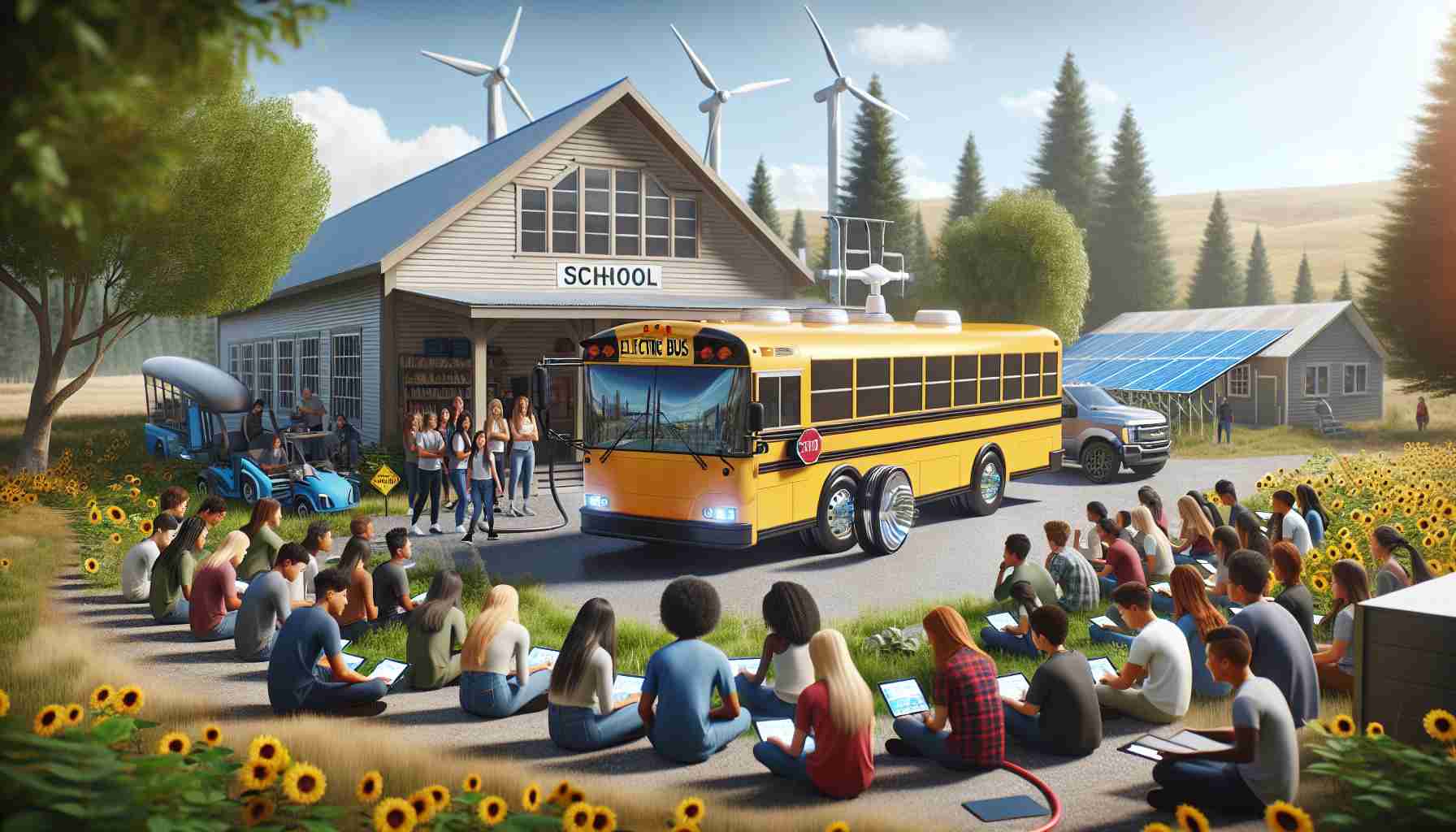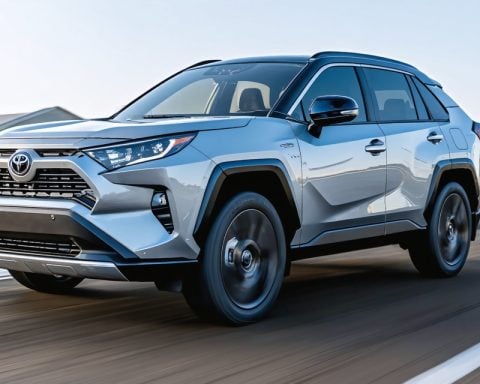- Eastern Washington school districts are adopting electric buses to promote eco-friendly transportation.
- Reardan-Edwall is set to receive two electric buses in March, with a focus on cost and maintenance comparisons.
- Challenges such as cold weather are being addressed with diesel heaters and insulation improvements.
- RWC Group is facilitating the transition by securing grants for rural districts to support electrification.
- Electric buses have a higher upfront cost but promise potential savings in operational expenses.
- Directors report optimism about the future of sustainable school transportation as they adapt to electric technologies.
- The hope is for electric buses to become integral to rural school transport and enhance environmental efforts.
As winter approaches, Eastern Washington school districts are making electrifying changes to their transportation fleets. The Reardan-Edwall School District is eagerly awaiting delivery of two brand-new electric buses set to hit the road in March. This innovative move promises not only an eco-friendly ride but also a direct comparison between the costs and maintenance of electric versus traditional diesel buses.
Nevertheless, with temperatures frequently dipping below freezing, challenges abound. The Republic School District’s first electric bus, introduced in 2021, had to be parked for the winter due to insufficient heating. To tackle this issue, both districts are investing in optional diesel heaters and enhancements like thicker insulation and automatic tire chains. Thanks to grants covering the bulk of the costs, making the switch was a feasible option.
RWC Group, a leader in commercial transportation, is spearheading the effort, securing federal and state grants for a group of rural districts. While electric buses cost between $389,000 and $455,000, diesel buses are significantly cheaper, priced at $150,000 to $185,000.
Both school transportation directors express cautious optimism about the future of electric buses. With potential operating savings of 10 cents per mile, they believe there’s a bright path forward for sustainable school transport. As they navigate the transition, the hope is that electric buses could become the backbone of rural school transportation, embracing predictable schedules and contributing to a greener future.
In this era of innovation, electric school buses are not just a spark; they could pave the way for a sustainable transport revolution!
Electric Buses: The Future of School Transportation in Eastern Washington!
Electrifying Changes in Eastern Washington School Districts
As winter approaches, school districts in Eastern Washington are making significant strides in upgrading their transportation fleets to electric buses. The Reardan-Edwall School District has announced the arrival of two brand-new electric buses, set to hit the road in March. This pioneering effort is not only about providing eco-friendly transportation but also about conducting a detailed analysis comparing the costs and maintenance needs of electric buses versus traditional diesel options.
However, the transition to electric buses presents challenges, especially during the frigid winter months. The Republic School District, which introduced its first electric bus in 2021, had to ground the vehicle in winter due to inadequate heating. To address this, both districts are investing in additional diesel heaters and upgrades, such as thicker insulation and automatic tire chains. These enhancements are made feasible through substantial grants that cover most expenses associated with the switch.
RWC Group is playing a pivotal role by securing federal and state grants to assist several rural school districts in this transition. The investment in electric buses, which ranges from $389,000 to $455,000, comes with a stark contrast to diesel buses priced between $150,000 and $185,000.
Both transportation directors share a cautious but optimistic outlook regarding electric buses, highlighting potential operating savings of about 10 cents per mile. They envision a future where electric buses serve as the backbone of rural school transportation, offering reliable schedules while promoting sustainability.
Key Updates on Electric School Buses
– Market Forecast: As the electric vehicle industry grows, electric bus sales in the education sector are expected to rise rapidly. By 2025, it is anticipated that over 10% of school bus fleets in the U.S. will be electric, driven by both environmental concerns and operational cost savings.
– Innovation and Features: Modern electric buses now come equipped with advanced technologies, such as regenerative braking systems, which help maximize energy efficiency. Furthermore, manufacturers are improving battery performance to enhance heat retention, crucial for colder climates.
– Sustainability and Security Aspects: Transitioning to electric reduces greenhouse gas emissions significantly, contributing to better air quality and a healthier environment. Moreover, electric buses often include security features such as enhanced GPS tracking and smart access for better safety management.
Frequently Asked Questions
1. What is the main advantage of electric buses over diesel buses?
Electric buses offer a significant environmental advantage by producing zero tailpipe emissions, which helps combat air pollution. Additionally, they provide operational cost savings, with lower fuel and maintenance costs compared to traditional diesel buses.
2. How do electric buses handle winter weather challenges?
Electric buses in colder climates are equipped with enhancements like diesel heaters, thicker insulation, and special features such as automatic tire chains to manage snowy and icy conditions, ensuring they are safe and functional during winter months.
3. What incentives are available for school districts to transition to electric buses?
Various federal and state grants and incentives are available to encourage school districts to transition to electric buses. These can significantly cover the costs associated with purchasing new electric buses and installing the necessary infrastructure.
For more information, visit Department of Education for updates on school transportation initiatives.
As the electric bus movement unfolds, it heralds an exciting step toward modern, sustainable school transportation that promises to deliver both operational efficiency and environmental sustainability.













